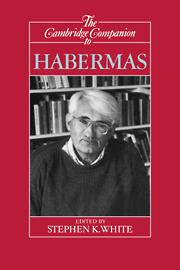8 - The self in discursive democracy
from PART IV - DISCURSIVE DEMOCRACY
Published online by Cambridge University Press: 28 May 2006
Summary
The tradition of radical democracy includes, in different ways, figures such as Jefferson and Emerson, Marx and Gramsci, John Stuart Mill and Dewey. What unites these otherwise diverse thinkers - what makes them “radical” democrats - is the view that democratic participation is an important means of self-development and self-realization. They also hold that more participation will produce individuals with more democratic dispositions - individuals who are more tolerant of difference, more sensitive to reciprocity, better able to engage in moral discourse and judgment, and more prone to examine their own preferences - all qualities conducive to the success of democracy as a way of making decisions. For the radical democrat, democracy is always more than a means of checking power and distributing values, as it is for most liberal democrats. Radical democrats hold, in the well-known reversal of Lord Acton's phrase, that powerlessness corrupts, and absolute powerlessness corrupts absolutely. Democracy is a way of life, a mode of decision making that generates its own ethics and values - expectations I have referred to elsewhere as the self-transformation thesis in democratic theory.
- Type
- Chapter
- Information
- The Cambridge Companion to Habermas , pp. 167 - 200Publisher: Cambridge University PressPrint publication year: 1995
- 48
- Cited by

